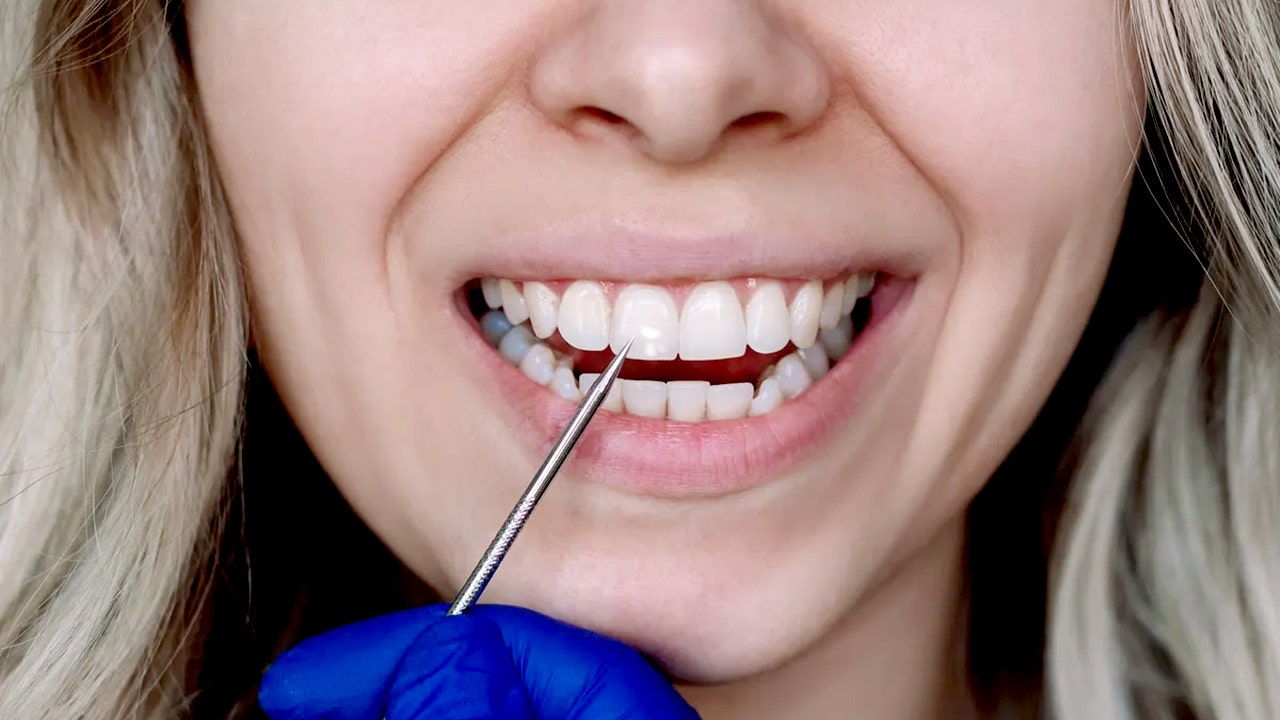Scientists use human hair proteins to repair damaged tooth enamel

[ad_1]
– For todayNow you can listen to FOX news headlines!
A group of scientists in London may have found a way to repair tooth enamel using an ingredient found in an unlikely place: human hair.
Researchers at King’s College London are examining keratin, the same natural protein found in hair, skin and nails, in teeth. In laboratory tests, the system “showed the possibility of repairing early dentact enamel lesions, restoring the appearance both visually and mechanically,” as for the future restoration of callities.
Daily habits such as cleaning acidic drinks or skipping the correct brushing gradually ecode the enamel, causing sensitivity and tooth loss, the study explains. While fluoride can only reduce damage, a Keratin-based formula in a new study completely prevented it in lab tests.
The researchers harvested Keratin from wool, and found that it forms a crystal-like structure when placed on the surface of teeth and exposed to minerals in saliva.
ROOT canals can do more than protect teeth; They can raise a whole life, they get to study
Keratin is a natural protein found in our hair, skin and nails. (Stock)
Over time, this structure attracted calcium and phosphate and turned into a hard layer that mimics opamel. By creating a dense cohesive layer that seals the nerve pathways, keratin protects teeth from excessive wear and reduces sensitivity at the same time, research says.
Managing gum disease can reduce the risk of heart attacks and strokes, research suggests

Keratin forms a crystalline structure that looks and behaves like enamel. (Stock)
According to the research group, the regenerated material can protect the teeth against the continuous wear of the acid, and the process can be reversed early decay.
Dental experts reveal 6 important tips to prevent tooth loss in older adults
What makes the discovery so attractive is its potential for absorption, the researchers say. Keratin can be harvested from hair or fur that cannot be thrown away, turning waste into a valuable health product.
In a press release, King’s College London Scientists say they see them being added to teeth every day or used in dentistry in the next few years, although that depends on further testing and commercialization.
Click here for more health news
Experts warn that this breakthrough is in its early stages.
“Only a limited size has been reproduced, and the durability is questionable,” Study notes, adding that “the clinical realization of this method is a challenge due to the complex process of composition.”

Scientists say they see a new ingredient being added to teeth every day or used in dentistry in the next few years. (Stock)
That means questions remain about the “scalability” of the solution in the full system.
Click here to subscribe to our New Health Newsletter
According to the researchers, more work is needed to understand how large and durable the enamel layer is and whether it can withstand years of real-world wear.

Enamel is the hardest substance in the human body, but it cannot be damaged again and again. (Stock)
Independent scientists have also noted that studies of lab-based regeneration of alien enamel often struggle with the complexity of real enamel.
Click here to download the FOX News app
Enamel is the hardest substance in the human body, but it cannot be damaged again and again. Traditional dentures and fluoride treatments only help slow decay or strengthen what’s left. If the Keratin-based method proves to be effective in humans, experts say it could mark a major step forward in tooth regeneration.
Test yourself with our latest lifestyle quiz
The study was published in the journal Advanced Health Materials.




